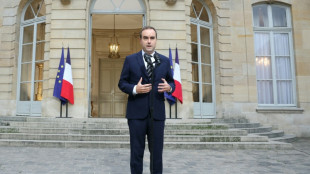
-
 Child's play for Haaland as Man City star strikes again
Child's play for Haaland as Man City star strikes again
-
India crush Pakistan by 88 runs amid handshake snub, umpiring drama
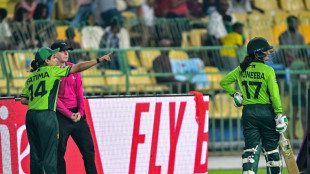
-
 Hojlund fires Napoli past Genoa and into Serie A lead
Hojlund fires Napoli past Genoa and into Serie A lead
-
Sevilla rout 'horrendous' Barca in Liga thrashing

-
 Haaland fires Man City to win at Brentford, Everton end Palace's unbeaten run
Haaland fires Man City to win at Brentford, Everton end Palace's unbeaten run
-
Haaland extends hot streak as Man City sink Brentford

-
 Italy working hard to prevent extra US tariffs on pasta
Italy working hard to prevent extra US tariffs on pasta
-
Sinner out of Shanghai Masters as Djokovic battles into last 16
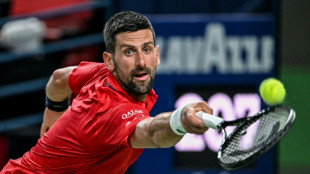
-
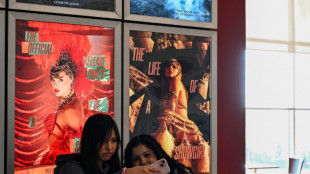 Swift rules N. America box office with 'Showgirl' event
Swift rules N. America box office with 'Showgirl' event
-
Ryder Cup hero MacIntyre wins Alfred Dunhill Links on home soil

-
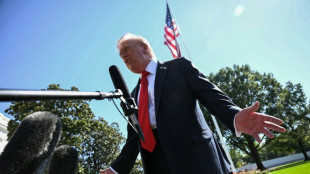 Republicans warn of pain ahead as US shutdown faces second week
Republicans warn of pain ahead as US shutdown faces second week
-
Sevilla rout champions Barca in shock Liga thrashing

-
 Norris-Piastri clash overshadows McLaren constructors' title win
Norris-Piastri clash overshadows McLaren constructors' title win
-
Trump administration declares US cities war zones
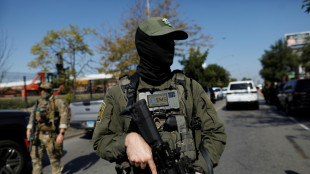
-
 Bad Bunny takes aim at Super Bowl backlash in 'SNL' host gig
Bad Bunny takes aim at Super Bowl backlash in 'SNL' host gig
-
El Khannouss fires Stuttgart into Bundesliga top four

-
 Insatiable Pogacar romps to European title
Insatiable Pogacar romps to European title
-
Newcastle inflict more pain on Postecoglou, Everton end Palace's unbeaten run

-
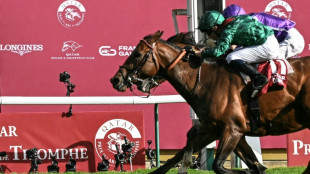 Daryz wins Prix de l'Arc de Triomphe thriller
Daryz wins Prix de l'Arc de Triomphe thriller
-
Russell wins Singapore GP as McLaren seal constructors' title
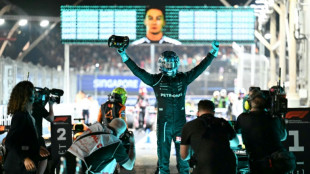
-
 Landslides and floods kill 64 in Nepal, India
Landslides and floods kill 64 in Nepal, India
-
Russell wins Singapore GP, McLaren seal constructors' title
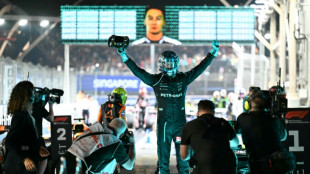
-
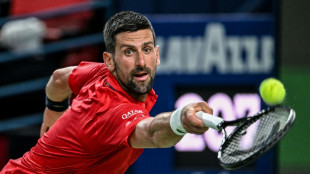 Djokovic 'hangs by rope' before battling into Shanghai last 16
Djokovic 'hangs by rope' before battling into Shanghai last 16
-
Erasmus proud of Boks' title triumph as Rugby Championship faces uncertain future
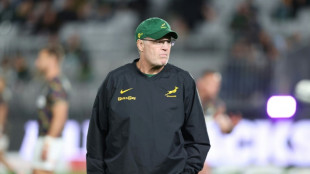
-
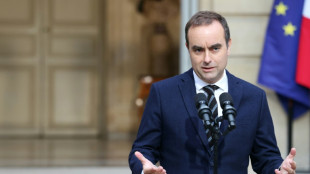 French PM under pressure to put together cabinet
French PM under pressure to put together cabinet
-
US Open finalist Anisimova beats Noskova to win Beijing title
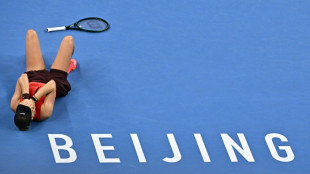
-
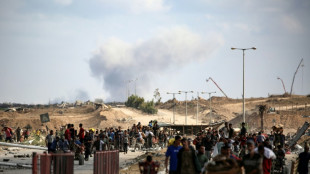 Hamas calls for swift hostage-prisoner swap as talks set to begin
Hamas calls for swift hostage-prisoner swap as talks set to begin
-
Opec+ plus to raise oil production by 137,000 barrels a day in November

-
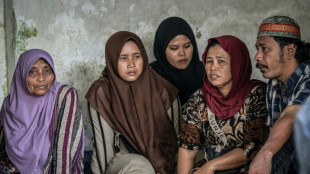 Death toll from Indonesia school collapse rises to 45
Death toll from Indonesia school collapse rises to 45
-
Brisbane Broncos edge Storm in thrilling NRL grand final

-
 Refreshed Sabalenka 'ready to go' after post-US Open break
Refreshed Sabalenka 'ready to go' after post-US Open break
-
Georgia PM vows sweeping crackdown after 'foiled coup'
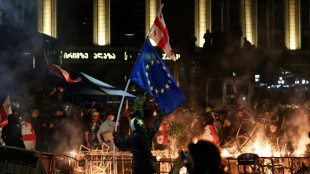
-
 Landslides and floods kill 63 in Nepal, India
Landslides and floods kill 63 in Nepal, India
-
No handshakes again as India, Pakistan meet at Women's World Cup
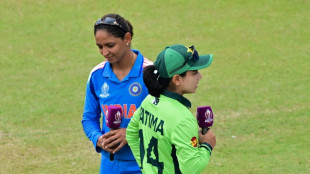
-
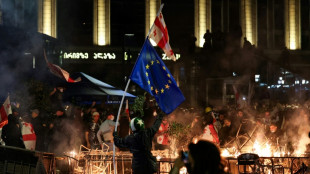 Georgia PM announces sweeping crackdown on opposition after 'foiled coup'
Georgia PM announces sweeping crackdown on opposition after 'foiled coup'
-
Syria selects members of first post-Assad parliament
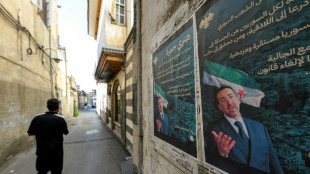
-
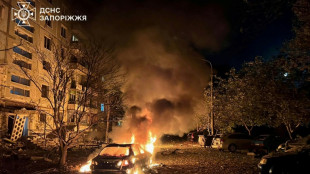 Russian strikes kill five in Ukraine, cause power outages
Russian strikes kill five in Ukraine, cause power outages
-
World champion Marquez crashes out of Indonesia MotoGP

-
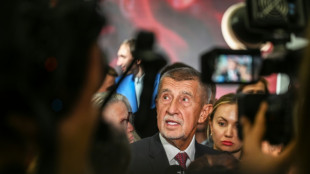 Babis to meet Czech president after party tops parliamentary vote
Babis to meet Czech president after party tops parliamentary vote
-
Death toll from Indonesia school collapse rises to 37
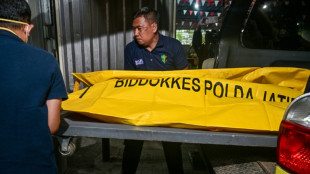
-
 OPEC+ meets with future oil production hanging in the balance
OPEC+ meets with future oil production hanging in the balance
-
Dodgers down Phillies on Hernandez homer in MLB playoff series opener

-
 Philadelphia down NYCFC to clinch MLS Supporters Shield
Philadelphia down NYCFC to clinch MLS Supporters Shield
-
Syria selects members of first post-Assad parliament in contested process
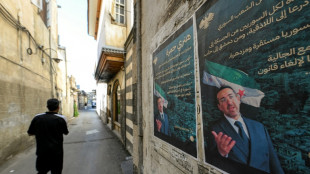
-
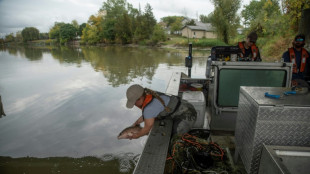 Americans, Canadians unite in battling 'eating machine' carp
Americans, Canadians unite in battling 'eating machine' carp
-
Negotiators due in Cairo for Gaza ceasefire, hostage release talks

-
 Trump authorizes troops to Chicago as judge blocks Portland deployment
Trump authorizes troops to Chicago as judge blocks Portland deployment
-
Wallabies left ruing missed chances ahead of European tour

-
 Higgo stretches PGA Tour lead in Mississippi
Higgo stretches PGA Tour lead in Mississippi
-
Blue Jays pummel Yankees 10-1 in MLB playoff series opener


War takes centre stage as Lebanon's theatres are back
As Lebanon suffered a war last year, Ali Chahrour was determined to keep making art, creating a performance inspired by the plight of migrant workers caught up in the conflict.
Months after a ceasefire largely halted the fighting between Israel and the Lebanese militant group Hezbollah, Chahrour's work premiered in Beirut in early May with plans to take it to stages across Europe including at France's famed Avignon Festival.
"This project was born during the war," said the 35-year-old playwright and choreographer.
"I did not want to stop making theatre, because I don't know how to fight or carry weapons, I only know how to dance."
On stage, two Ethiopian domestic workers and a Lebanese Ethiopian woman speak, sing and dance, telling stories of exile and mistreatment in "When I Saw the Sea", directed by Chahrour.
The play pays tribute to the migrant women who were killed or displaced during the two-month war between Israel and Hezbollah which ended in November, and the year of hostilities that preceded it.
Hundreds of migrant workers had sought refuge in NGO-run shelters after being abandoned by employers escaping Israeli bombardment.
Others were left homeless in the streets of Beirut while Lebanon's south and east, as well as parts of the capital, were under attack.
Chahrour said that "meeting with these women gave me the strength and energy to keep going" even during the war, seeking to shed light on their experience in Lebanon which is often criticised for its poor treatment of migrant workers.
- 'Escape and therapy' -
The war has also shaped Fatima Bazzi's latest work, "Suffocated", which was shown in Beirut in May.
It was revised after the 32-year-old playwright was displaced from her home in Beirut's southern suburbs, a Hezbollah stronghold heavily bombarded during the war.
The play originally portrayed a woman dealing with her misogynistic husband, and was reshaped by Bazzi's own experience, forced to escape to Iraq until the ceasefire was finally reached.
Determined to continue the project the moment she returned to Lebanon, Bazzi had kept in contact with the cast in video calls.
"We took advantage of this in the performance, the idea of separation and distance from each other, how we worked to continue the play," she told AFP during a recent rehearsal.
At one point in the play, the characters are suddenly interrupted by the sound of a bomb and rush to their phones to see what was hit this time, with their reactions becoming scenes of their own.
To Bazzi, working on the play has allowed her and the cast to "express the things we felt and went through, serving as an escape and therapy".
- 'Children of war' -
Theatre stages across Lebanon did not lift their curtains during the war, and though they are now back, the local scene is still burdened by the effects of a devastating economic crisis since 2019.
"We postponed an entire festival at the end of last year due to the war," said Omar Abi Azar, 41, founder of the Zoukak collective.
The group runs the theatre where Bazzi's latest piece was performed.
"Now we have started to pick up the pace" again, said Abi Azar, whose own play was postponed by the war.
"Stop Calling Beirut", which Abi Azar created with his collective, tells the story of the loss of his brother more than a decade ago and their childhood memories during Lebanon's civil war, which ended in 1990.
Zoukak itself was born out of a crisis during a previous war between Hezbollah and Israel in 2006.
"We are children of war. We were born, raised and grew up in the heart of these crises," said Abi Azar.
To him, "this is not a challenge, but rather our reality".
"If this reality wanted to pull us down, it would have dragged us, buried us and killed us a long time ago," he added, seeking hope in art.
U.Maertens--VB

